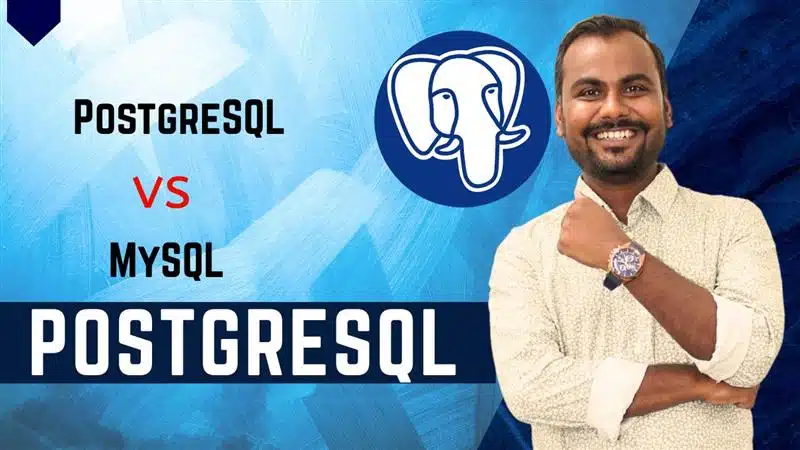PostgreSQL vs MySQL in 2025: Which Database Should You Learn?
PostgreSQL vs MySQL in 2025: Which Database Should You Learn?
In the ever-evolving world of data management, choosing the right relational database management system (RDBMS) is crucial for developers, data engineers, and businesses alike. Two of the most popular open-source databases—PostgreSQL and MySQL—continue to dominate the landscape in 2025. But which one should you invest your time in learning?
Let’s dive deep into a comparison based on performance, scalability, and use cases to help you make an informed decision.
Overview
| Feature | PostgreSQL | MySQL |
|---|---|---|
| Type | Object-Relational DBMS | Relational DBMS |
| License | PostgreSQL License (Open Source) | GPL (with commercial options) |
| Developer | PostgreSQL Global Development Group | Oracle Corporation |
| ACID Compliance | Full | Full (with some storage engines) |
| JSON Support | Advanced | Basic |
Performance
PostgreSQL
- Strengths: Known for complex queries, data integrity, and concurrency.
- Query Optimizer: Advanced planner and optimizer for complex joins and subqueries.
- Write Performance: Slightly slower for simple inserts but excels in bulk operations and parallel queries.
- Indexing: Supports GIN, GiST, BRIN, and partial indexes.
MySQL
- Strengths: Excels in read-heavy workloads and simple queries.
- Storage Engines: Offers multiple engines (InnoDB, MyISAM), with InnoDB being the default.
- Write Performance: Faster for simple inserts and updates, especially in smaller datasets.
- Replication: Mature and easy-to-set-up master-slave and group replication.
Verdict:
- Choose PostgreSQL for complex analytics and data-heavy applications.
- Choose MySQL for web apps, CMS, and read-heavy workloads.
Scalability
PostgreSQL
- Vertical Scaling: Excellent support for multi-core CPUs and large memory.
- Horizontal Scaling: Tools like Citus, Patroni, and pgpool-II enable sharding and clustering.
- Partitioning: Native support for declarative partitioning.
MySQL
- Vertical Scaling: Performs well on single-node setups.
- Horizontal Scaling: MySQL Cluster, Vitess, and ProxySQL help scale out.
- Replication: Easier to set up than PostgreSQL, but less flexible in complex topologies.
Verdict:
- PostgreSQL is better suited for enterprise-level scaling.
- MySQL is easier to scale for smaller to mid-sized applications.
Use Cases
PostgreSQL
- Data Warehousing
- Geospatial Applications (PostGIS)
- Financial Systems
- Scientific Research
- Custom Business Logic
MySQL
- Web Applications (WordPress, Joomla)
- E-commerce Platforms
- CRM Systems
- SaaS Products
- Mobile App Backends
Verdict:
- Use PostgreSQL when data integrity, extensibility, and analytics are priorities.
- Use MySQL for speed, simplicity, and web-based applications.
Developer Experience
| Feature | PostgreSQL | MySQL |
|---|---|---|
| JSON Support | Full JSONB support, indexing | Basic JSON functions |
| Extensibility | Custom types, operators, languages | Limited |
| Community & Ecosystem | Strong, academic, enterprise | Massive, web-focused |
| Tooling | pgAdmin, DBeaver, Postico | MySQL Workbench, phpMyAdmin |
Learning Curve
- PostgreSQL: Steeper learning curve due to advanced features, but rewarding for data-intensive roles.
- MySQL: Easier to pick up for beginners and web developers.
Final Thoughts: Which One Should You Learn in 2025?
| If You Are… | Learn This DB |
|---|---|
| A web developer building CRUD apps | MySQL |
| A data engineer or analyst | PostgreSQL |
| Working with geospatial or scientific data | PostgreSQL |
| Building a startup MVP or CMS | MySQL |
| Interested in enterprise-grade systems | PostgreSQL |
Both databases are powerful and widely used. The best choice depends on your career goals, project requirements, and technical interests.
At Learnomate Technologies, we make sure you not only understand such cutting-edge features but also know how to implement them in real-world projects. Whether you’re a beginner looking to break into the database world or an experienced professional upgrading your skillset—we’ve got your back with the most practical, hands-on training in Oracle technologies.








Happy Vibes!
ANKUSH








